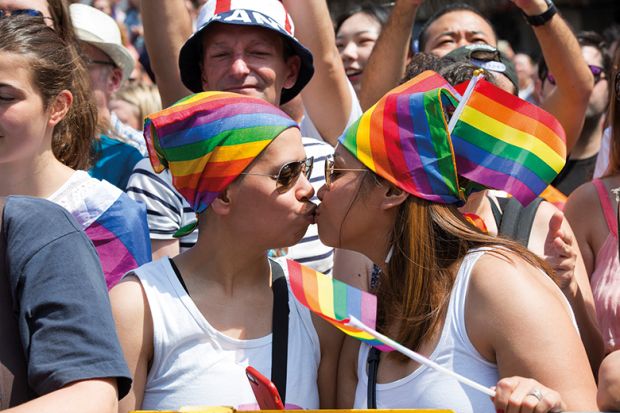A study bills itself as offering the first causal evidence that going to university makes people “more liberal” on social attitudes, plus more right-wing on economics, backing up theories that higher education expansion is transforming societal values and politics.
The paper analysing data from the British Cohort Study, by Ralph Scott, a research associate at the University of Manchester, comes as the divide between graduates and non-graduates is being seen as an increasingly important political cleavage across the West.
Mr Scott’s paper, published in Electoral Studies, says it offers “the first causal estimate of higher education specifically, finding that achieving a degree reduces authoritarianism and racial prejudice and increases economic right-wing attitudes”.
Previous research has looked at the impact of additional years of secondary schooling on political values. Meanwhile, research by University of Bristol political sociologist Paula Surridge comparing attitudes of graduates and non-graduates to the death penalty has found a correlation between being a graduate and lower levels of authoritarianism.
But Mr Scott told Times Higher Education he had sought to develop on that earlier research by making “more use of the longitudinal nature of the data” in the British Cohort Study, which set out to track throughout their lives approximately 18,377 people born in England, Scotland and Wales in one week in April 1970. That allowed him to pinpoint “the change over time before and after university” in individuals’ attitudes, and thus to identify the causal effect of going to university on political values, he said.
To construct measures of racial prejudice, authoritarianism and left- or right-wing beliefs on economics, Mr Scott’s paper analyses responses to three of the survey’s statements looking at political values: “I would not mind if my child went to a school where half the children were of another race”; “For some crimes the death penalty is the most appropriate sentence”; and “Government should redistribute income from the better off to those who are less well off”.
Higher education “demonstrates its strongest effect” in reducing levels of authoritarianism, with more moderate but still statistically significant effects on the other two measures, reports the paper, which emerges from Mr Scott’s ongoing doctoral thesis.
“Whether or not university is having a causal effect” in making people more liberal, rather than liberals simply being more likely to go to university, “makes a huge difference”, said Mr Scott.
“One implication of the findings could be that the reason why social attitudes more generally have become more liberal…could be at least partly due to the expansion of higher education,” he added.
If university is making people more socially and economically liberal, why would that be?
There is “some evidence on the economic side of things that…on average if you’re earning more”, as graduates do, “you’re probably less likely to support higher taxation and more redistribution”, Mr Scott replied.
On racial prejudice, previous research has tended to emphasise “social contact theory”, holding that by introducing people to a diverse peer group, the experience of going to university makes people less prejudiced, he added.
But on reduced levels of authoritarianism, Mr Scott noted that American political scientist Seymour Martin Lipset argued the effect of education on political values “was more about giving cognitive skills to unpick authoritarian viewpoints – to think a bit more critically”.




